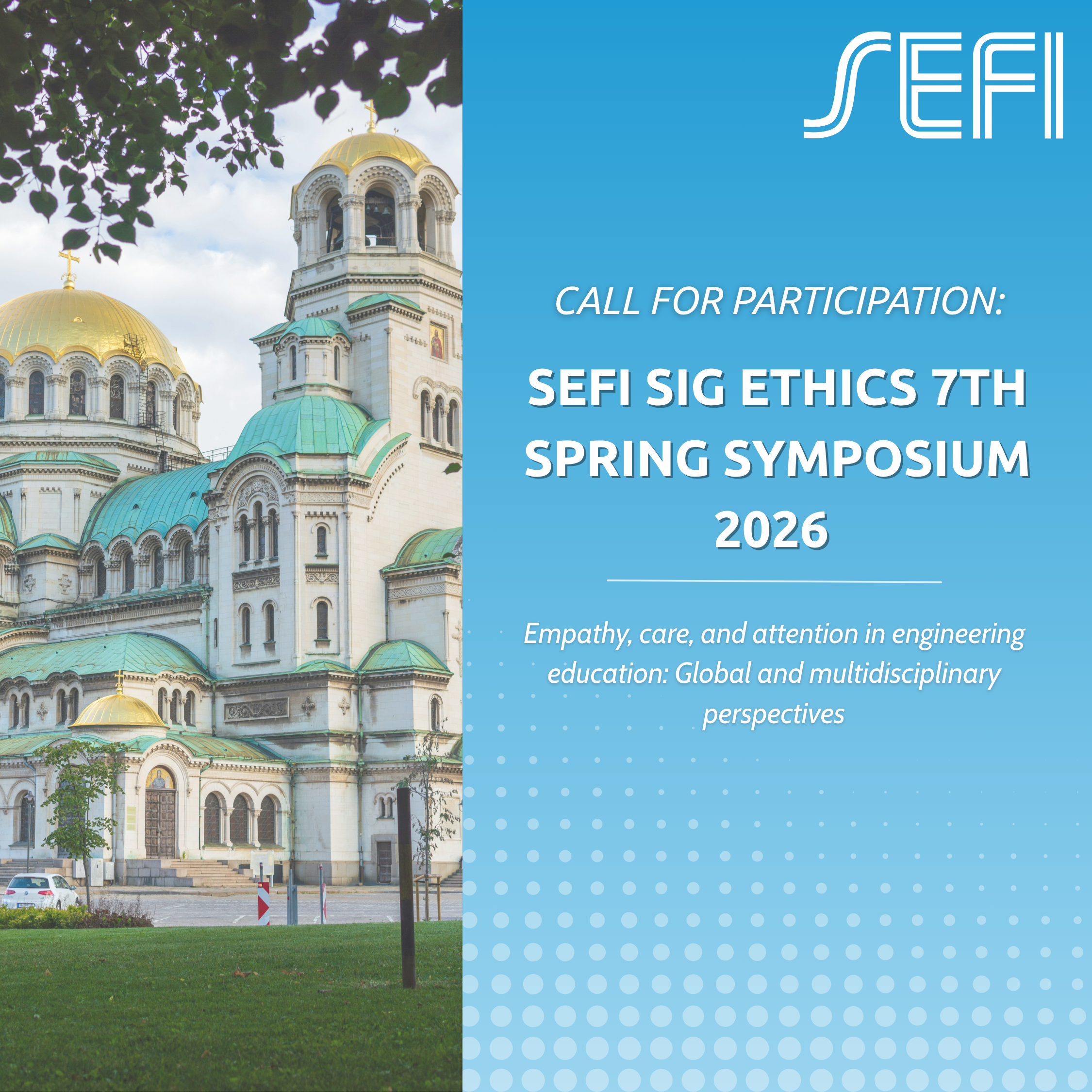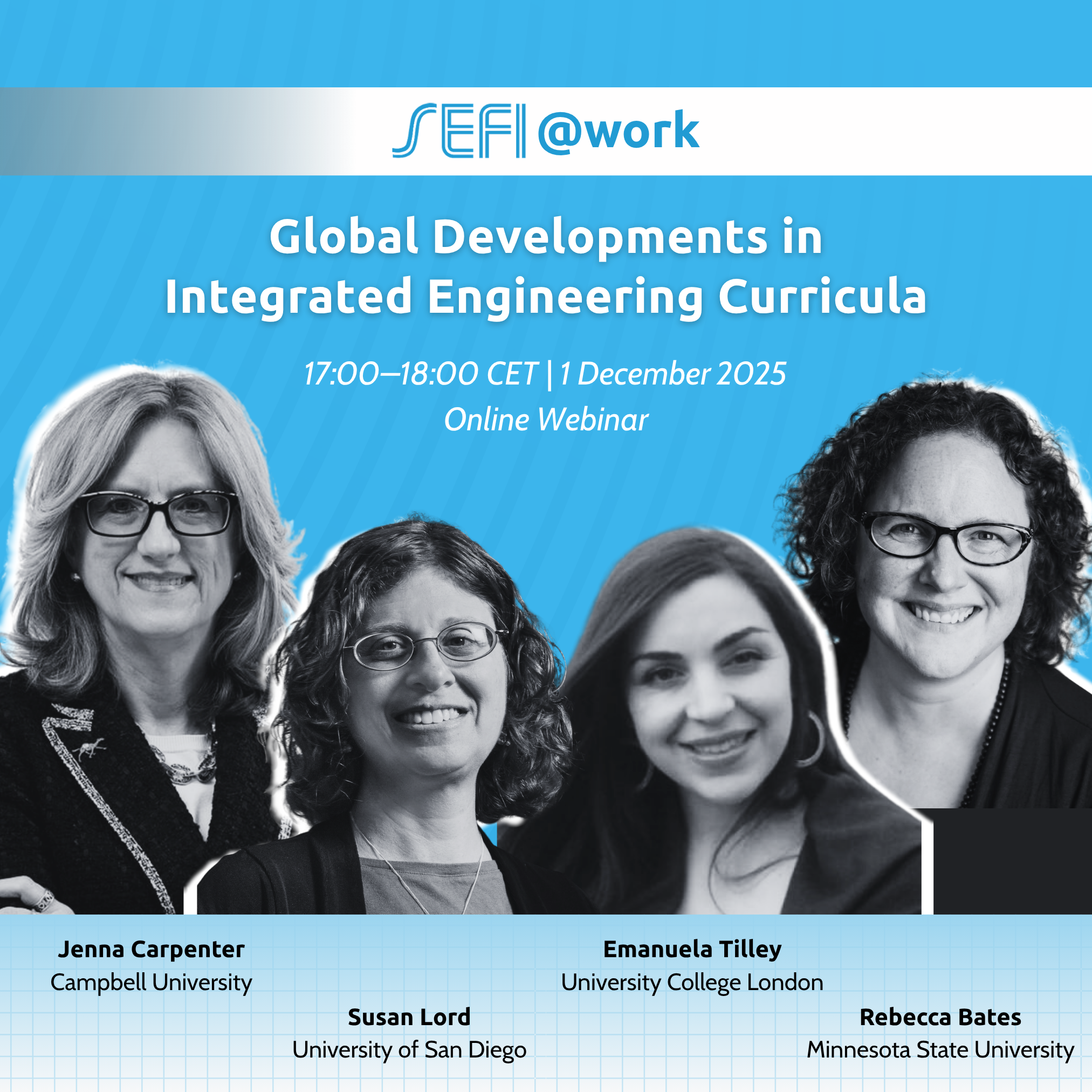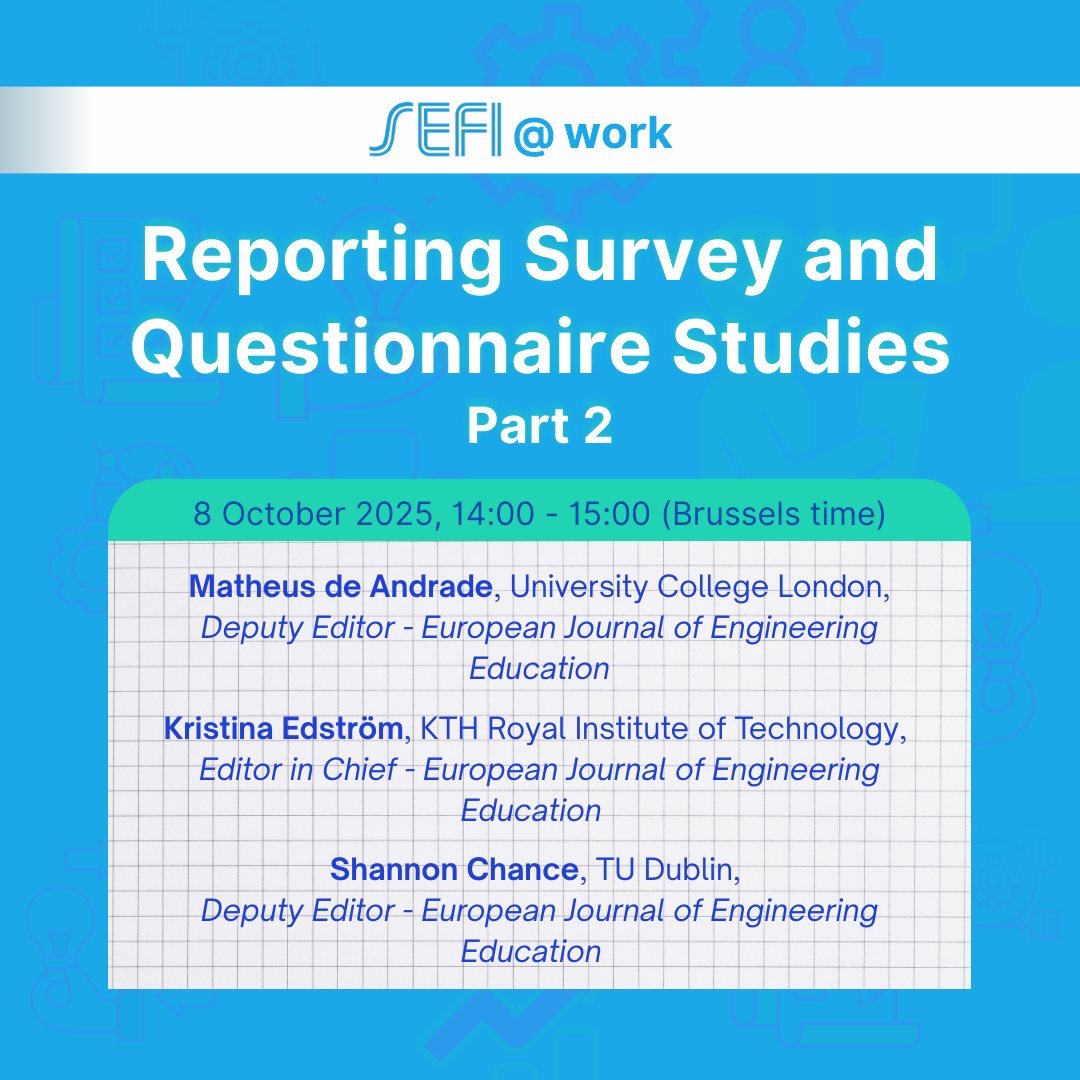Empathy, care, and attention in engineering education: Global and multidisciplinary perspectives Date: 20-24 April 2026 (9:00-17:30…
Ethics Seminar: Using case studies in engineering ethics education
04 March 2021, 15-17:00 CET – online

Speakers:
Cindy Rottmann (University of Toronto, Canada) Decoupling ethics from equity is neither ethical nor equitable
Aditya Johri (George Mason University, USA) Implementing Role-Play Case Studies for Teaching Ethics in Online Classes
Dympna O’Sullivan (TU Dublin, Ireland) Dark Patterns: When Software Engineers go to the Dark Side
Thomas Lennerfors (Uppsala University, Sweden): Case hacks: Four hacks for promoting critical thinking in education for sustainable development
Case studies are considered to be the most used method in engineering ethics instruction, but despite their popularity, there is little known on how they are presented, the kind of cases used, how they should be taught, and what approach serves the achievement of which learning goals. The seminar aims to respond to the need for guidance in the area of engineering ethics case instruction, bringing together four educators who have experience with developing and using case studies. Each of the four speakers will present an engineering ethics case study they developed, hoping to inspire engineering instructors in the use of case studies, as well as fostering a discussion about the broader goals and frameworks related to their application.
For further information you may contact the organiser, Diana Adela Martin (TU Dublin) dianaadela.martin@tudublin.ie
Meet our speakers
Cindy Rottmann is the Associate Director, Research at the Troost Institute for Leadership Education in Engineering (Troost ILead) where she leads an interdisciplinary team of engineers and social scientists on research projects examining engineering leadership, equity and ethics in professional engineering contexts. Cindy is the current Program Co-Chair and Director of Scholarly Activity for the Leadership Division of the American Society of Engineering Education (ASEE LEAD). Over the past two decades, she has published 75 articles and conference papers on social justice leadership, engineering leadership, teacher union activism, and engineering ethics and equity education.
Aditya Johri is Professor of Information Sciences & Technology in the Volgenau School of Engineering at George Mason University and director of the Engineering Education & Cyberlearning Lab (EECL) Lab. He studies how technology shapes learning in both formal and informal spaces, including the workplace, online communities, and extra-curricular activities. He is co-editor of Cambridge Handbook of Engineering Education Research (CHEER) and a past recipient of the U.S. National Science Foundation (NSF) Early CAREER Award for engineering education research. He received his Ph.D. in Learning Sciences & Technology Design from Stanford University, Palo Alto, CA. For further details including a list of publications please see: http://mason.gmu.edu/~johri/
Dympna O’Sullivan is a Senior Lecturer at the School of Computer Science at Technological University Dublin. She has a BSc in Computer Science and a PhD in Machine Learning from UCD. Her research interests are in the application of intelligent computing techniques across a number of domains including healthcare, education and smart infrastructure. She is the PI of the Ethics4 EU project, a transnational Erasmus+ project that is exploring issues around teaching ethics in Computer Science. She is co-founder of the ASCNet (Applied Social Computing Network) Research Group at TU Dublin, a human-centric-technology and solutions research group, that aims to put people at the heart of research.
Thomas Taro Lennerfors is a Professor and head of the division of Industrial Engineering and Management at Uppsala University, Sweden. He has taught ethics in engineering and management programs since the early 2000s, and recently published the books Ethics in Engineering (Studentlitteratur, 2019), and Tetsugaku Companion to Japanese Ethics and Technology co-edited with Kiyoshi Murata (Springer, 2019).
Our previous webinar:


